SAA-Nigeria organized the Annual Stakeholder Meeting 2023
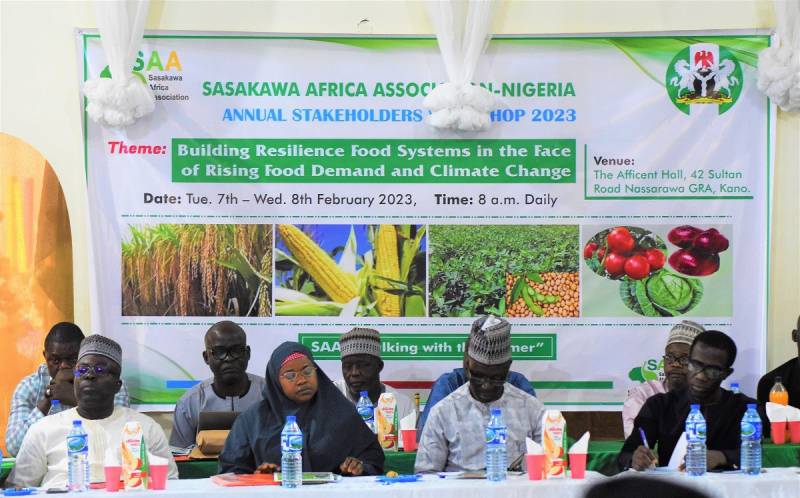
More than 100 stakeholders in the agricultural sector converged in Kano for the 2023 annual stakeholders meeting between 7 and 8 February to discuss solutions to the various constraints faced by farmers and other agriculture value chain actors in Nigeria.
The theme of the meeting, Building Resilience in Food Systems in the Face of Rising Food Demand and Climate Change, attracted policymakers and partners, including the commissioner of Agriculture from Kano State, participants from the Federal Ministry of Agriculture and Rural Development (FMARD), National Agricultural Research Institutes (NARIs), Agricultural Development Programmes (ADPs) of Nasarawa, Kano, Jigawa, Gombe, Niger, Kaduna, etc., Universities, Private sectors, Farmers/Farmer organizations (FOs) as well as NGOs.
In his welcome address, President Dr. Makoto Kitanaka reminded the audience of SAA’s long-term relationship with the Nigerian government since 1992, stating how collaboration through the Agricultural Development Programs(ADPs) has helped enhance crop management skills Extension Agents and smallholder farmers to improve yields and productivity.
SAA-Nigeria Country Director, Dr. Godwin Atser, explained that the workshop presented an excellent opportunity to meet on a round-table with strategic partners in the agricultural development sector to review SAA program activities in the outgone year and unveil implementation plans for 2023.
He described that SAA’s achievements hinge on the three main pillars of Regenerative Agriculture (RA), Nutrition Sensitive Agriculture (NSA), and Market Oriented Agriculture (MOA) with cross-cutting components— capacity building, inclusiveness and digitalization.
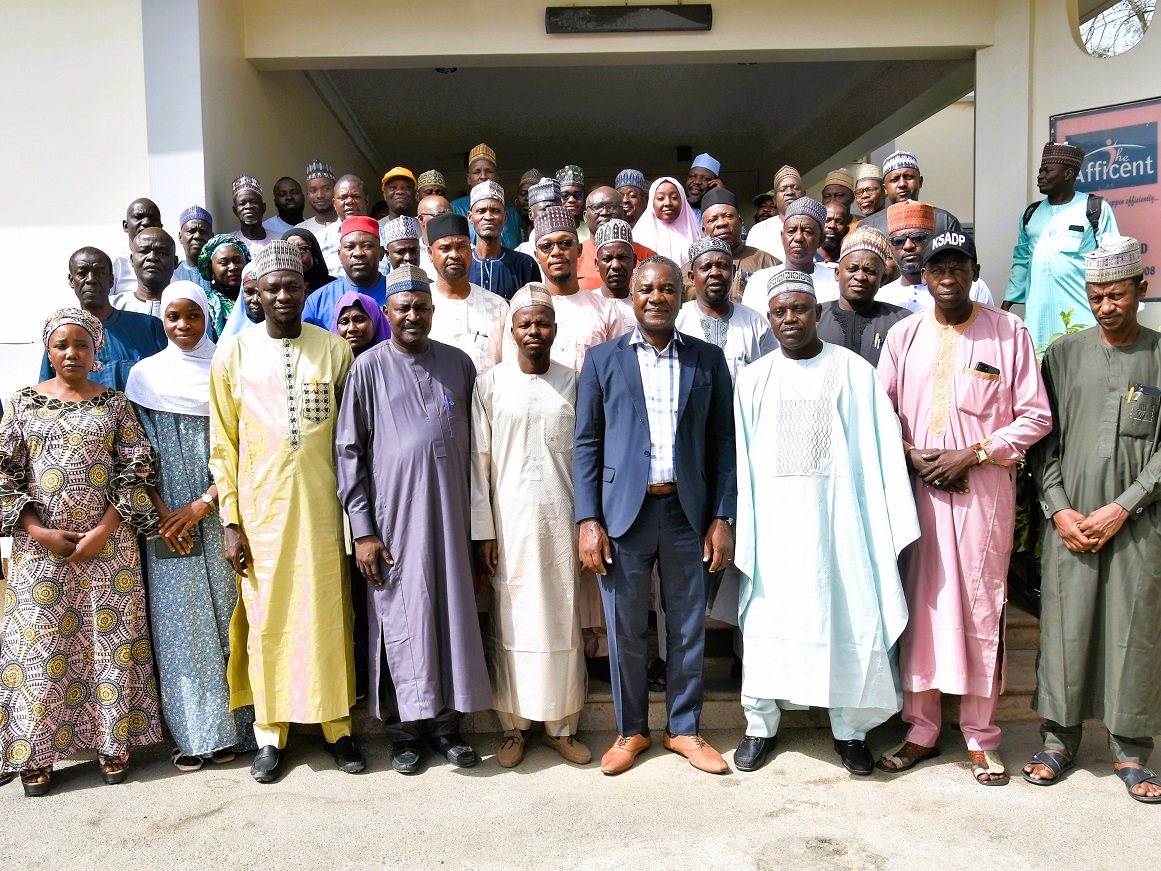
Rising from the two-day deliberations, participants at the meeting made the following comments and recommendations:
1) Recognizing the impact of climate change on agriculture, and particularly smallholder farmers, stakeholders agreed that there is a need for joint efforts, breaking silos
2) There was a need to engage the universities in the areas of documentation of research impact in the field
3) Participants reiterated the need to recognize the impact of existing extension networks. Therefore, projects and programs should engage the ADPs to implement interventions seamlessly.
4) The efforts of the Kano State Government through the Kano State Agro-pastoral Development Project (KSADP) implemented in partnership with SAA towards transforming agriculture in the state were commended; in particular, the resuscitation of the extension system in the state
5) The issue of extension policy for the country was discussed, and participants called on the Federal Government to sign the extension policy document to strengthen the extension system in Nigeria.
6) It was agreed that the digitalization of extension services must be done in the context of the realities of farming/farmers’ typologies. Therefore, the design of digital tools should be human-centred. Furthermore, there is a need to raise awareness of existing digital tools to promote adoption and use.
7) The Building an Economically Sustainable Integrated Cassava Seed System (BASICS) model of scaling cassava seeds was appreciated. However, participants requested that the BASICS-II project and National Agriculture Seed Council (NASC) scale the cassava seeds system to northern Nigeria, considering that cassava in the region has transformed from a subsistence crop to a cash crop.
8) The new focus of the SAFE program targeting short courses was extensively discussed and welcomed by participating universities. However, it was agreed that university delegates discuss the feasibility of effectively opening and operating short certificate courses with their management.
10) Participants expressed grave concern over the extension farmer ratio (1:10,000) and urged governments to fully revitalize the state ADPs towards higher functionality. In addition, using a pluralistic extension model involving private-advisory service providers was welcomed.
13) Participants requested that the SAA model be scaled to new geographies as SAA interventions showed farmers improved their yields, and at the same time, farmers’ profitability increased.
SAA Publications
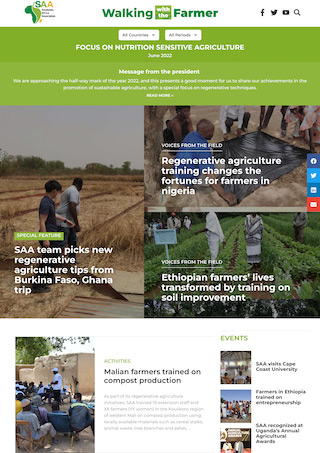
E-newsletter
"Walking with the Farmer"
SAA publishes a bimonthly e-newsletter reporting on SAA activities.
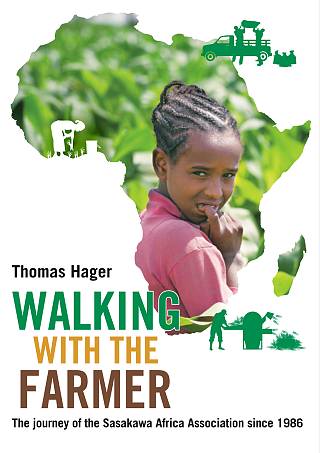
SAA history book
"Walking with the Farmer: The journey of the Sasakawa Africa Assoication since 1986"
This book chronicles the history of SAA from its inception to the present.
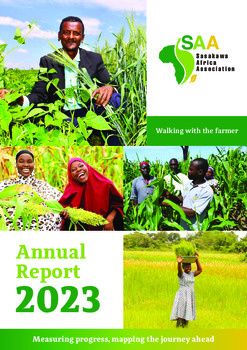
Annual Report
Annual Report FY2023
Annual Report FY2023 is available here.




